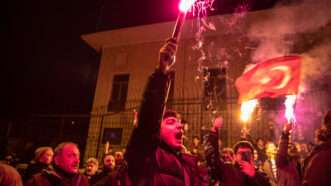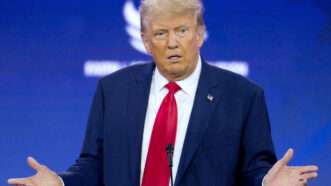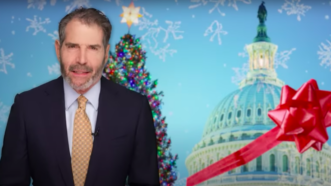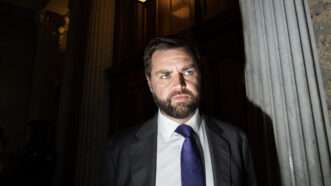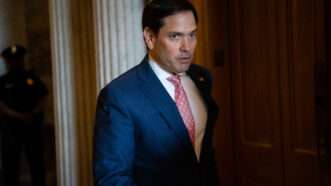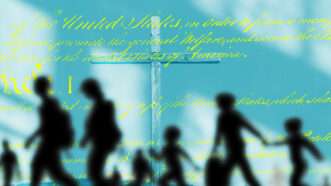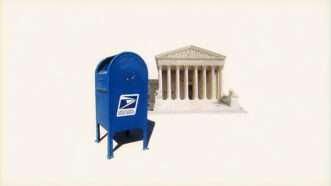Religion and the Law
Denmark May Ban Burning the Quran
A cabinet minister who once defended the right to blaspheme now wants a crackdown.
No Constitutional Right to Opt out of Sexual-Minority-Themed Curriculum Elements at Public Elementary School
A federal court rejects challengers' Free Exercise Clause and parental rights claims.
No Matter What Trump Does, Evangelicals Still Love Him
What does that tell us about the state of American Christianity?
Supreme Court Clarifies 'Undue Hardship' Standard for Religious Accommodations in the Workplace
Plus: Perspectives on the affirmative action ruling, how U.S. policy is thwarting Cuban capitalists, and more...
S. Ct. Unanimously Broadens (Somewhat) Employees' Rights to Religious Exemptions from Neutral Work Rules
The decision, which interprets Title VII's reasonable accommodation provision (enacted in 1972), applies to private employees as well as government employees.
Schools Have No Constitutional Obligation to Try to Keep Students from Having Sex in the Parking Lot
"[T]he Does cannot wield the constitutional right to parent as a sword to require the district to adopt policies that help them to direct and control their son's choices," and likewise as to the right to free exercise of religion.
Economic Freedom Is Declining in the U.S.
We once ranked No. 4 in the world, according to the Heritage Foundation. Now we're 25th.
An Orthodox Rabbi Makes the Case for Legalizing Organ Markets
Some of the points made by Rabbi Yitzhak Grossman in the course of assessing the issue under Jewish law have broader significance, as well.
On Religious Divisiveness and the Judicial Role
Justice Breyer thought the Establishment Clause authorizes judges to improve the tone of political discourse. It does not.
Justice Breyer's Establishment Clause Particularism
Justice Breyer saw church-state controversies as highly and inevitably fact-bound, solvable only through a judicial balancing exercise.
Roy Moore Is (Still) Constitutionally Illiterate
A lesson in how to ensure you lose a case in court.
"Appeasement"? Or, Avoiding Error?
Justice Breyer did not always vote with the Court’s strict-separationist justices. Good for him.
Justice Breyer and the Establishment Clause
Even without writing majority opinions, his contributions were important.
Court Upholds Order Limiting Divorced Father's Talking to Gay Son About Sexual Orientation and Religion
"[W]e find no error by the trial court in finding that Father had mentally abused N. The circuit court concluded that N. was 'frightened,' 'scared,' and 'fearful' of his Father's anger and his Father's refusal to accept his sexual orientation."
Do the Natcons Get Anything Right?
Plus: A listener asks if the Roundtable has given the arguments of those opposed to low-skilled immigration a fair hearing.
Conservatives Pushing 'Common Good Capitalism' Sound a Lot Like Progressives
The ideology champions the same tired policies that big government types predictably propose whenever they see something they don't like.
Establishment Clause Related to School's Transcendental Meditation Program Sent to Transcendental Mediation
OK, not really, but the judge partly denied the motion for summary judgment, which would allow it to go to trial.
Was This Couple Married 0, 1, or 2 Times?
Florida Law + New York Law + Jewish Law = ....
Florida Pastors Are Worried This Immigration Bill Could Infringe on Religious Liberties
S.B. 1718 would make it a third-degree felony to “harbor” or “transport” undocumented immigrants. Some Florida faith leaders say it could threaten their church activities.
Divorced Father Inflicted "Mental Injury" on 12-Year-Old Son By Religious Criticisms of Son's Felt Homosexuality
The Appellate Court of Maryland just upheld the lower court's finding, and related protective order.
No First Amendment Protection for 12 Cypress Trees,
when plaintiff's "connection to his trees [was] rooted in a vague and indeterminate concept of spirituality, quantum physics, and cosmic mechanics."
SCOTUS Will Decide Whether Federal Law Shields a Religious Postal Employee Who Refuses To Work on Sundays
The Supreme Court considers the scope of federally required religious accommodations at work.

